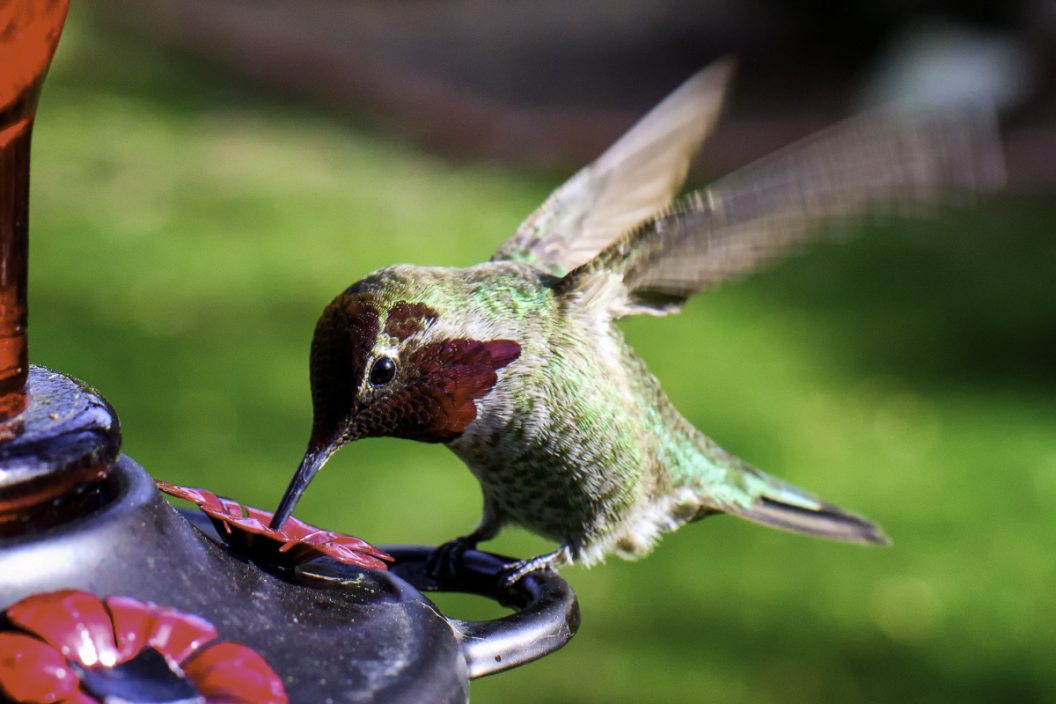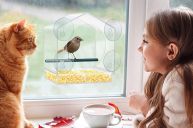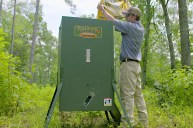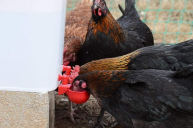Attracting hummingbirds with colorful feeders? Make sure you are cleaning them.
Hummingbirds are such a delight to watch as they eat. However, they fly so fast! Often, bird watchers attract these beautiful birds by using hummingbird feeders. However, cleaning hummingbird feeders is just as important as filling them up.
Why Do You Need to Clean Hummingbird Feeders?
In our neck of the woods, there are numerous hummingbird feeders hanging from trees, eaves, and shepherds hook, waiting for little hummers to come and drink their fill. Those who don't have feeders have bright flowers that attract the sweet birds to their properties.
We have a couple of feeders ourselves. Hummingbirds drink almost five times their weight in nectar so it is incredibly important to keep the feeder full of sugar water since they are constantly drinking. A hummingbird can drain a single feeder of hummingbird food in a day. When you go to refill your nectar feeder, it is also the perfect time for cleaning.
But why do you need to clean hummingbird feeders?
Hummingbirds are very fragile and sensitive creatures. Feeders are prone to getting moldy. Worst of all it can being to grow black mold. This dangerous mold can slowly poison hummingbirds reducing their population. Also, bees and other bugs can become trapped in the nectar making it undrinkable. Don't just stop at cleaning your hummingbird feeder.
Really any wild bird should not be eating out of a dirty feeder. If your hummingbird feeder is a part of a feeding station, take the opportunity to clean each piece when you clean the feeder.
How to Clean a Hummingbird Feeder
https://www.instagram.com/p/BzrEInhg0TM/
RELATED: Get an up Close View of Hummingbirds With Hat and Ring Feeders
Bird watching is a great hobby and rather popular with backyard birders. However, bird feeding comes with great responsibility. According to Audubon, you should clean a hummingbird feeder twice per week, especially with hot weather. Hot water can also cause the solution to ferment, so take that into consideration on hot, hot days too!
In cooler temperatures, once a week may be sufficient. Though, if your hungry little hummers are flying through the sugary sweet water solution, you may want to clean them sooner.
- Empty your feeder and dispose of any leftover nectar.
- Disassemble your hummingbird feeder. Soak any tough to clean feeder parts in water.
- Create a mild cleaning solution of dish soap and hot water and allow the feeder to soak. You can also use a bleach solution ( 1 part bleach, 9 parts water) or some white vinegar(1 part vinegar, 2 parts water), just be sure you are rinsing thoroughly with tap water.
- Using a bottle brush or toothbrush, scrub away any nectar residue or mold buildup, make sure you get all the nooks and crannies with the bristles.
- Rinse your hummingbird feeder with cold water.
- Allow feeder to air dry before refilling.
You can also do a deep clean once a month using a gallon of water and a quarter cup of bleach.
When Should You Replace the Nectar in Hummingbird Feeders?
Hummingbird nectar should be replaced every 3-5 days and remember that the feeding ports should also be cleaned out so you don't have black mold living anywhere.
Be careful when you make the feeding solution too. Do not put red dye in the water as it can make the birds sick. Also, make sure you get your ratio to sugar correct. Too much sugar can cause fermentation to start faster, making your little hummers sick.
Who knew there was so much to birding!
Now, hummingbirds have food sources outside your feeder but clean feeders at least once a week for these visitors!
Know someone who has hummingbird feeders? Share this post! Let us know how you clean your hummingbird feeder on our Wide Open Pets Facebook page!
This post was originally published on July 8, 2019.





